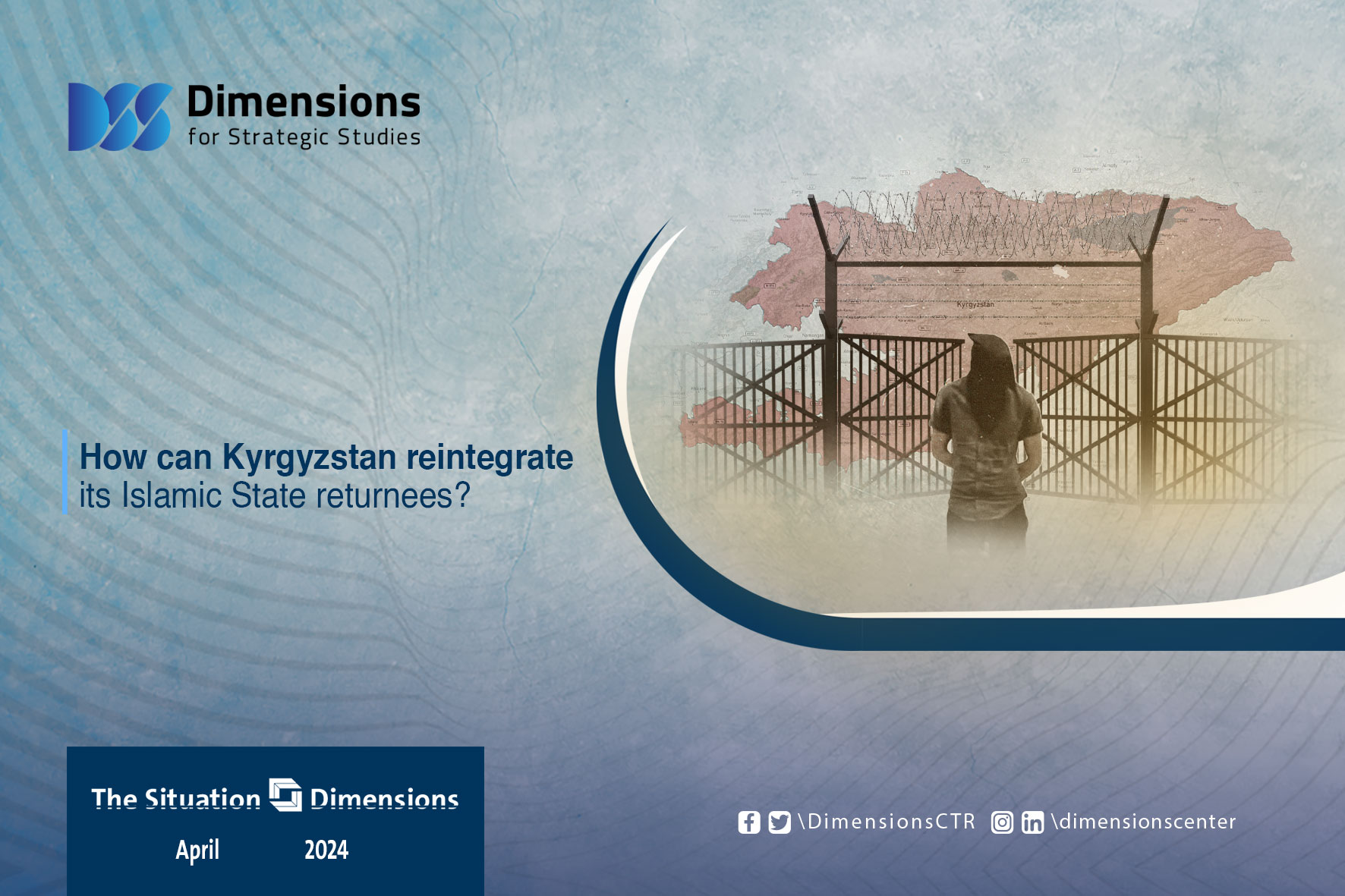
How can Kyrgyzstan reintegrate its Islamic State returnees?
2024-04-242096 view
In April, Kyrgyzstan completed its national programme to repatriate Kyrgyz women and children detained in Syria and Iraq. Attention will now turn to its next steps on the issue, such as the rehabilitation process needed to reintegrate children and women, how to judge its success or failure, and whether its example will be followed by other countries in Central Asia with large numbers of citizens who have joined jihadist organizations and now languish in prisons run by the Syrian Democratic Forces (SDF) or in Iraq.
In 2013, 850 Kyrgyz citizens moved to war-torn Syria. Some 150 were male fighters, while the rest were children and women, and they mainly headed to Raqqa and Latakia provinces. Following the split between IS and the Al-Qaeda-affiliated Al-Nusra Front, Kyrgyz-dominated brigades appeared, including the Imam al-Bukhari Battalion and the Tawhid and Jihad Battalion, which pledged allegiance to Jabhat al-Nusra. These outfits carried out operations abroad, in Bishkek, the Tajik capital, in 2016 and St. Petersburg, in 2017. Fewer than 50 fighters were part of the IS-affiliated Army of the Caliphate, all of whom were killed in fighting between 2015 and 2019.
In 2019, following the defeat of IS, the SDF transferred the foreign civilians still in Baghouz, the group’s last stronghold in eastern Deir ez-Zor, to the Al-Hawl and Al-Roj camps in southern Al-Hasakah Governorate, where as many as 12,000 foreign adults and children were now being held. In March 2021, the Kyrgyz government began a programme to repatriate 511 of its citizens (129 women and 382 children) from SDF camps and Iraqi prisons, in six operations. On June 21, 2022, it completed the process of repatriating 79 Kyrgyz children from Iraq, whose authorities refused to release the remaining Kyrgyz women, who were handed long prison sentences.
The reintegration process is meant to operate by placing the returned women and children in special centres for six months, under the supervision of doctors and academics specializing in psychology, before allowing them to join their communities and families. This is to be supported by the United Nations Children’s Fund (UNICEF) and the International Committee of the Red Cross (ICRC). The Kyrgyz government says it “will not get involved” in the reintegration process for returning children and women.
However, the authorities are obliged to place the returned women on trial. This presents them with two main options. Firstly, they could follow the approach of the government of Uzbekistan, where the women returning from Syria and Iraq went through an integration and rehabilitation programme similar to that of Kyrgyzstan, with a focus on social and economic support, along with vocational education. When the programme ended, the women were brought before civil courts and many were handed prison sentences. However, the president of Uzbekistan pardoned them, allowing them to avoid the actual prison sentence.
The second option is to implement such prison sentences. This has been the policy of Kazakhstan, which has handed returned women jail terms ranging from three to seven years, depending on how they moved to Syria and the jobs or activities that they carried out. Kazakhstan and Uzbekistan, which were among the first countries to take back their citizens from the SDF, between them repatriated about 793 children and 304 women between 2019 and 2021.
These countries are likely to face a growing risk of extremism and the recruitment of returning children into IS or Al-Qaeda cells, which are growing in the region as IS steps up its activity in Central Asia, particularly in Tajikistan, and attempts to recruit more local fighters. The Afghan Taliban’s inability to contain the Pakistan-based jihadist groups that were previously its allies, such as the Islamic Jihad Union and the Ansar Allah group, means that these groups pose a real threat to the region. This is especially true given the likelihood of a new wave of extremism around the world due to the war in Gaza and indications of escalating activity by jihadist groups in Central Asia.
Despite this, since the repatriation of the first batch of Central Asians from Syria and Iraq in 2019, there are no known cases of adult returnees becoming involved in any jihadist or extremist activity. That said, jihadist organizations may well try to establish other cells and networks that do not involve such individuals.
Kyrgyzstan is bound to face challenges in integrating the adult women it has repatriated, from trying and jailing them to establishing effective mechanisms for their rehabilitation and reintegration, as well as determining how much economic support can be provided to them in the meantime. Moreover, it will have to tackle the new wave of jihadist recruitment in Central Asia. While IS in Syria and Iraq has lost its lustre, the victories of its branch in Afghanistan and Africa, and the ongoing war in Gaza, may push more new members into the arms of IS and similar jihadist groups.





